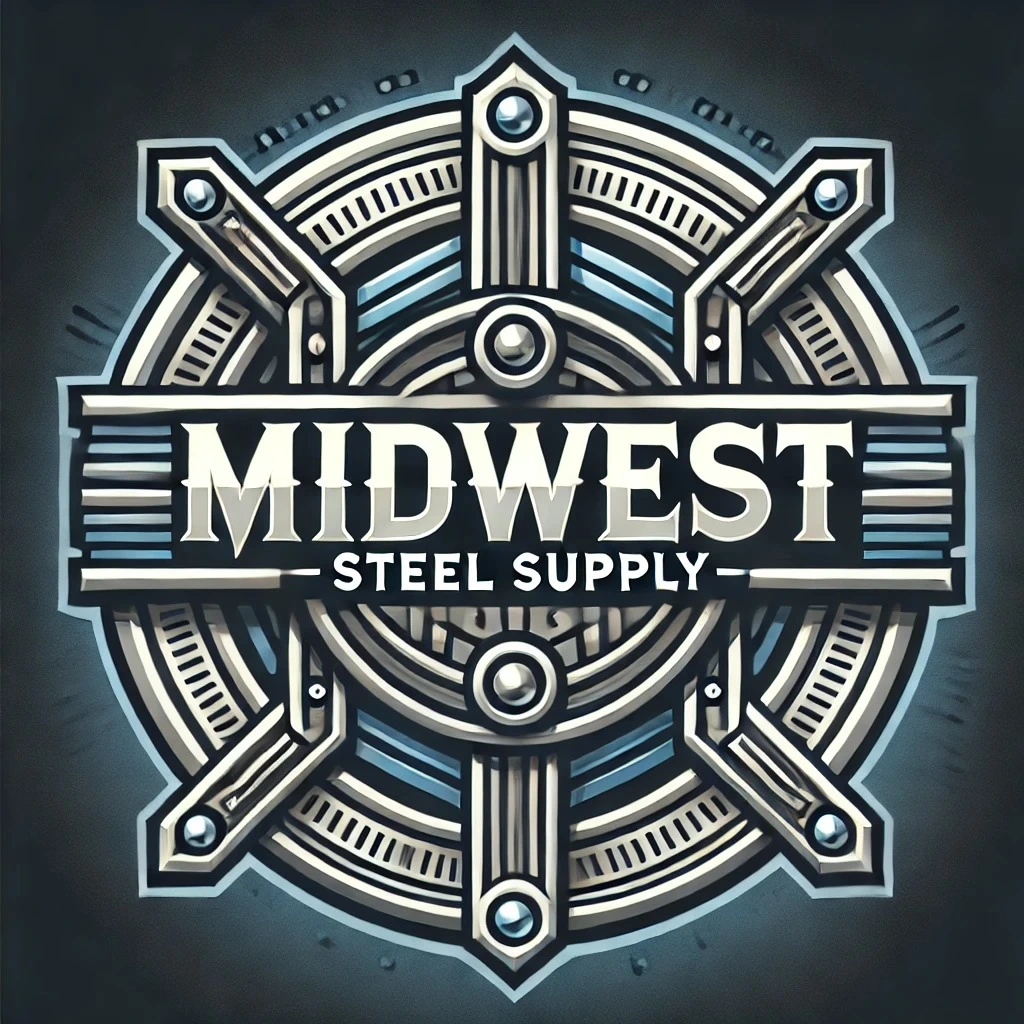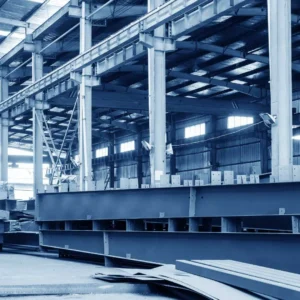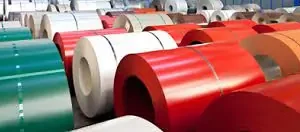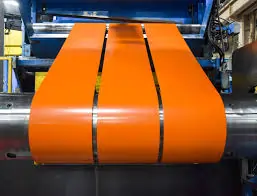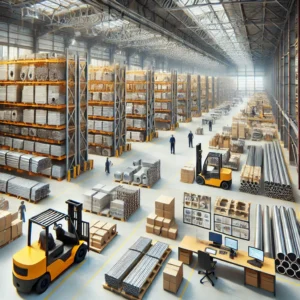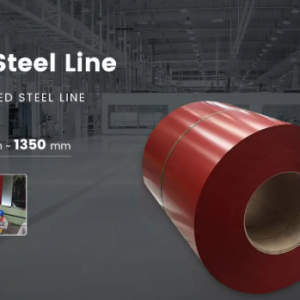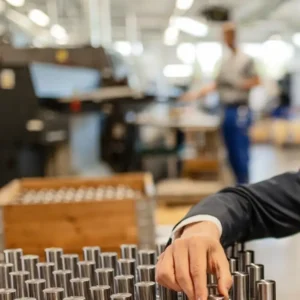Introduction to Hot-Rolled Steel Strip Coils
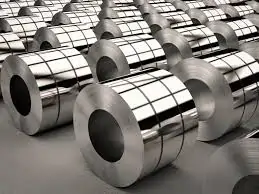
One of the most applied products of flat steel used in manufacturing across the world is the hot-rolled strip coils. Manufactured by heating the steel slabs beyond their recrystallization temperature and thereafter by being rolled into long strips that are then coiled, these products accord a distinctive combination of strength, workability and cost effectiveness.
The process provides a rougher surface and looser tolerances than cold-rolled steel, but is quicker, more cost-effective and is well suited to most applications, including fabrication of structures, ship-building, automotive chassis and industrial equipment. Production of coils runs the gamut of coil grades, including low-carbon mild steels (Q195, Q235) through to higher-strength grades (S235JR, S355JR), and is available through thicknesses to well below a millimeter to 20 millimeters, with upwards of two meters of width.
Chinese Hot-Rolled Steel Strip Coil Manufacturing Power
China has established itself as a global leader in the production of hot-rolled steel strip coils. The country’s steel industry is massive, technologically advanced, and deeply integrated into both domestic and export markets. Large-scale state-owned enterprises as well as competitive private mills supply customers around the world.
Major Industry Leaders
China Baowu Steel Group is the largest steelmaker in China and one of the largest in the world. It operates numerous mills across the country and produces an enormous range of flat-rolled products, including hot-rolled strip coils, to global standards such as ASTM, JIS, and EN. Its scale ensures high production capacity, consistent quality, and the ability to meet bulk orders for major infrastructure or manufacturing projects.
Delong Steel has become a significant player in the international steel market, specializing in high-quality carbon structural steel and hot-rolled coil production with modern equipment and large annual outputs.
Shagang Group, China’s largest privately owned steel producer, offers hot-rolled coils, wire rods, and other flat products. It is known for aggressive export strategies and continuous investment in advanced rolling technology.
Angang Steel (Ansteel) is a state-owned enterprise with strong R&D capabilities and offers hot-rolled coil products tailored to industries such as shipbuilding, heavy machinery, and energy.
Specialized and Mid-Tier Producers
Beyond the industrial giants, China is home to many specialized and mid-tier manufacturers. Zhengzhou City Unites Steel Industrial Co., Ltd. produces around 100,000 metric tons of steel coils annually, serving sectors from construction to appliance manufacturing.
Shanghai Huagang Steel Co., Ltd. has over 20 years of experience and manufactures hot-rolled, cold-rolled, galvanized, and pre-painted coils for industries like container manufacturing and shipbuilding.
Zhejiang Zhong Ding Iron and Steel Co., Ltd., founded in 2003 and ISO 9001 certified, supplies a variety of coil types with a strong reputation for quality.
Jiangsu Olsen Iron and Steel Co., Ltd. in Wuxi produces over a million metric tons annually and exports to automotive, construction, and machinery sectors.
Liaocheng Xinzheng Steel Co., Ltd., established in 2009, focuses on hot-rolled coils and offers value-added services like slitting, leveling, coating, and embossing.
Hot-Rolled Steel Coil Suppliers Near Faisalabad, Pakistan
For businesses and manufacturers located in Pakistan, especially around Faisalabad, local suppliers play a key role in providing hot-rolled steel strip coils. Faisalabad’s position as an industrial hub means it has access to both imported coils and products from domestic rolling mills.
Abdullah Steel offers hot-rolled coils and other flat steel products to construction companies, fabrication workshops, and manufacturing plants in the region. Proximity allows shorter delivery times and reduced transport costs within the country.
Progress Invest Pakistan Pvt Ltd supplies coils in various thicknesses and weights to suit customer needs.
Several smaller steel trading firms in the Faisalabad area also cater to industry-specific demands, providing flexibility for smaller batch orders.
While Pakistan has some domestic steel production, a significant portion of high-volume and specialized coil demand is met through imports, often originating from China. Local distributors buy in bulk from foreign mills and then supply to domestic buyers in smaller lots.
Choosing Between Chinese and Local Suppliers
When deciding whether to source from Chinese manufacturers or local suppliers, several factors must be weighed.
Advantages of Sourcing from China
Chinese producers offer unmatched production capacity, a broad selection of grades and sizes, and competitive prices at scale. They are particularly suited to large-scale projects or ongoing manufacturing operations requiring consistent supply. Advanced equipment, international certifications, and established export networks also make China a strong option.
Advantages of Local Sourcing
Local suppliers provide immediacy and convenience. They can deliver within days rather than weeks or months, and transactions are simpler regarding payment and delivery. For small to medium-sized orders, local sourcing’s flexibility often outweighs the cost advantage of bulk imports. Local vendors are also familiar with regional regulations and industry needs.
Quality Control Considerations
Regardless of origin, quality assurance is essential. Buyers should ensure that products meet recognized standards and request mill test certificates or third-party inspection reports. This is especially important for applications where the steel will face structural loads or demanding environments. Reliable suppliers will provide documentation proving compliance and may offer sample inspections before final shipment.
Cost and Logistics Factors
Prices for hot-rolled coils fluctuate with raw material costs, energy prices, and demand cycles. Chinese mills may offer lower base prices, but buyers must consider the total landed cost, including freight, port charges, duties, and inland transport. Local suppliers may have higher per-unit prices but avoid many of these extra costs and provide faster service.
A hybrid sourcing strategy can be effective: securing bulk supply from Chinese mills to benefit from lower prices while relying on local distributors for urgent or specialized needs. This approach balances cost optimization with operational flexibility.
Conclusion
Hot-rolled steel strip coils are a vital raw material across countless industries, from construction to manufacturing. China’s role as a global steel powerhouse offers buyers advanced production capabilities, diverse product options, and competitive pricing. Local suppliers near Faisalabad and throughout Pakistan provide speed, convenience, and adaptability for smaller or time-sensitive orders. By carefully evaluating production requirements, budgets, and logistical realities, businesses can create sourcing strategies that ensure reliability, quality, and cost-efficiency in their steel supply chain.
